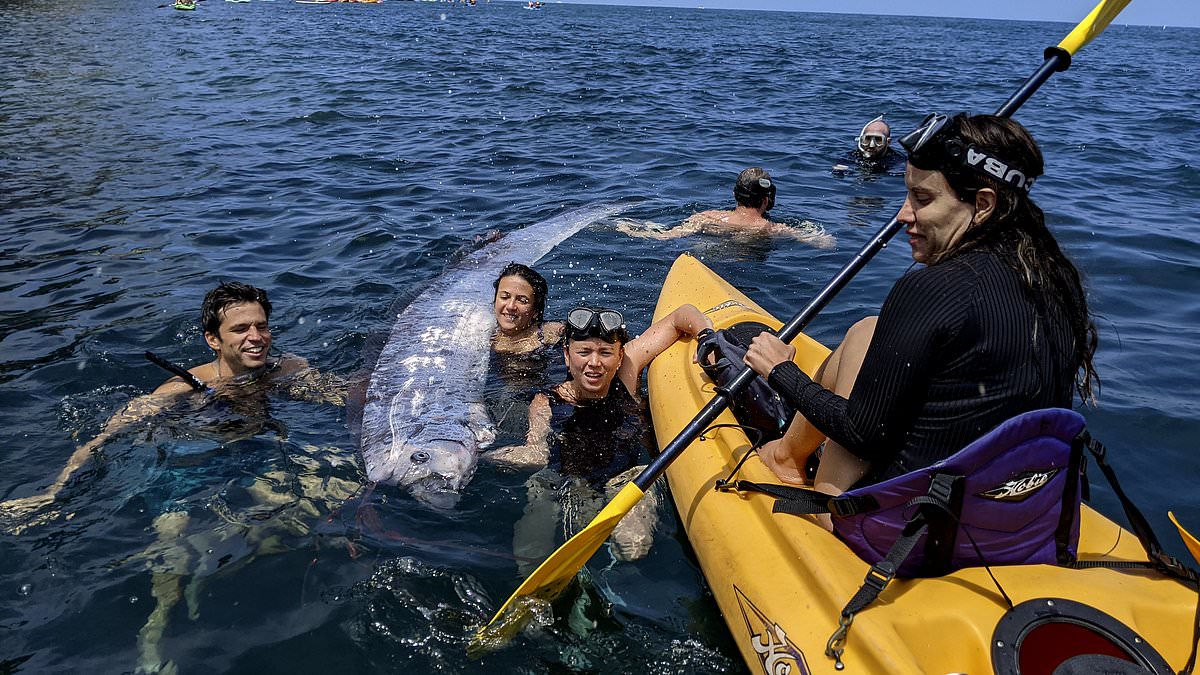A rarely seen ‘doomsday serpent fish’ was found floating dead on the ocean surface off the San Diego coast on Wednesday and was brought ashore for study, marine experts said.
The silvery, 12-foot-long oarfish was found last weekend by a group of snorkelers and kayakers in La Jolla Cove, north of downtown San Diego, the Scripps Institution of Oceanography said in a statement.
Legend has it that the fish are harbingers of earthquakes and other natural disasters ‘although no correlation has been proven,’ Scripps says – even with the 4.4-magnitude quake on Monday centered near the Highland Park neighborhood in Los Angeles.

A group of snorkelers and kayakers in La Jolla Cove found a 12-foot-long oarfish over the weekend
That quake came on the heels of a 5.2-magnitude earthquake on August 6, which was centered near Bakersfield, and was felt across most of Southern California, according to NBC San Diego.
It’s only the 20th time an oarfish is known to have washed up in California since 1901, according to institution fish expert Ben Frable.
Oarfish can grow longer than 20 feet and normally live in a deep part of the ocean called the mesopelagic zone, where light cannot reach, according to the National Oceanic and Atmospheric Administration.

Swimmers brought the La Jolla Cove oarfish to shore atop a paddleboard
Swimmers brought the La Jolla Cove oarfish to shore atop a paddleboard. It was then transferred to the bed of a pickup truck.
‘Thanks to the work from these locals, scientists will be able to further study this mysterious species as it will become part of the Marine Vertebrate Collection at Scripps, one of the largest collection of deep sea fish in the world,’ said a news release from UC San Diego.
Scientists there, along with researchers from NOAA Southwest Fisheries Science Center, are planning a necropsy on Friday to try to determine the fish’s cause of death.
